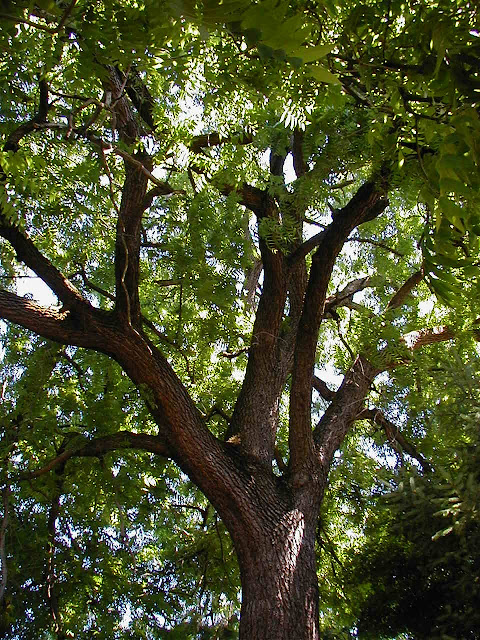Good Yule Day #12: Contemplating Heimdall
 |
| "Heimdallr stands by the bridge, blowing into Gjallarhorn." Credit: Emil Doepler, Public domain, via Wikimedia Commons |
On this final day of Yule, I honor Heimdall. He's the watchman of the gods who guards Bifrost, the Rainbow Bridge, which spans the length between Asgard and Midgard, aka between the dwelling of the deities and humankind. It is his duty to guard against the mountain giants. He has keen eyesight and hears everything, even the rustle of a blade of grass. He will one day sound the great horn, Gjallarhorn, to presage the coming of Ragnarok.
While the lore suggests humans were created by Odin, it's Heimdall who fathered three classes; slaves, freemen, and the rulers after posing as a king among humans. His great hall is called Himinbjorg, and of it Odin under his name Grimnir says:
Himinbjorg it is called
and there Heimdall
rules over sacred places.
There the watchman of the gods
drinks in his comfortable lodgings,
happily, the good mead.
 |
| Asgard and Bifrost in interpretation of Otto Schenk in Wagner's drama Das Rheingold. Credit: Richard Wagner, Otto Schenk (FAL-1.3 or FAL-1.3), via Wikimedia Commons |
He is a friend to Freya but a foe of Loki and will fight him at Ragnarok. He was born of nine mothers known as the nine waves, the daughters of the sea god, Aegir. I'm fascinated by the depth of this god's lore while still leaving him a bit of a mystery. Davidson describes the many threads hinted at in the lore; his connection to the Vanir, the sea, the World Tree, the underworld, and being the father of society.
Sources and inspiration:
- Butler-Ehle, Hester. Hearth and Field: A Heathen Prayer Book, Second Edition. Fieldstone Hearth 2010, 2011.
- Ellis Davidson, H.R. Gods and Myths of Northern Europe. Penguin Books, 1964.
- Lafayllve, Patricia M. A Practical Heathen's Guide to Asatru.
- The Poetic Edda. Translated by Carolyne Larrington. Oxford University Press, 2014 (revised edition).
- Sturluson, Snorri. The Prose Edda. Translated by Jesse Byock. Penguin Classics, 2005.
© Trish Deneen



Comments
Post a Comment